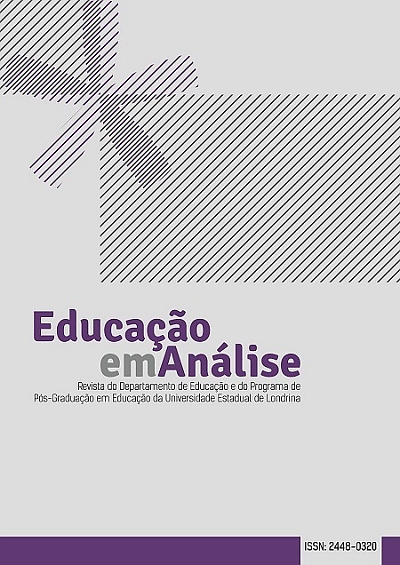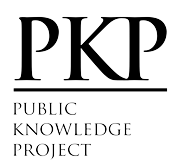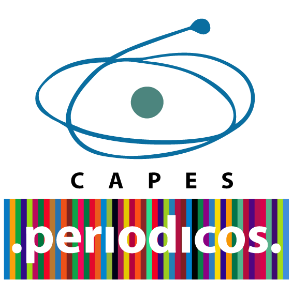Jogos digitais na educação: como estudantes de pós-graduação em educação percebem seu uso em contextos escolares
DOI:
https://doi.org/10.5433/1984-7939.2017v2n2p321Palavras-chave:
Jogos Digitais, Educação, Formação ReflexivaResumo
Este artigo tem como objetivo investigar as percepções dos estudantes de pós-graduação em Educação sobre a utilização de jogos digitais no contexto escolar a partir de uma formação reflexiva. Para tanto, realizou-se uma pesquisa de abordagem qualitativa e quantitativa com nove alunos de pós-graduação em educação, regularmente matriculados na disciplina de “Jogos eletrônicos e Educação” de uma universidade pública brasileira. A coleta de dados aconteceu por meio de questionário e transcrição dos relatos e reflexões das experiências dos estudantes da pós-graduação quanto às suas práticas pedagógicas com a utilização deste recurso. Os resultados revelaram que os alunos da pós-graduação percebem a potencialidade do uso dos jogos digitais em seus contextos de atuação, salientando dificuldades, desafios e possibilidades quando aplicadas ao contexto escolar. Além disso, relataram algumas experiências de sucesso e desafios encontrados nesse caminho, os quais refletidos à luz da revisão sistemática realizada possibilitaram um olhar para os diferentes aspectos envolvidos nesta prática, dentre eles, a necessidade de um olhar atento à formação de professores neste âmbito. Alerta-se a importância de os professores estarem imersos em um desenvolvimento profissional contínuo, aprendendo a integrar as tecnologias e os jogos digitais ao currículo escolar e nas suas práticas pedagógicas. Nesse sentido, é importante que os professores saibam como inserir os jogos digitais em sala de aula, compreendendo as potencialidades referentes a aprendizagem dos seus alunos, além de proporcionar experiências divertidas em contexto educacional.Downloads
Referências
ALVES, Flora. Gamification: como criar experiências de aprendizagens engajadoras: um guia completo do conceito a prática. São Paulo: DVS, 2014.
ANASTÁCIO, Bruna Santana. Contextos lúdicos de aprendizagem: uma aproximação entre os jogos eletrônicos e educação a distância. 2016. Dissertação (Mestrado) - Universidade Federal de Santa Catarina, Florianópolis, 2016.
BALASUBRAMANIAN, Nathan; WILSON, Brent G.; CIOS, Krzystof J. Innovative methods of teaching science and engineering in secondary schools. Journal of Systemics, Cybernetics and Informatics, Texas, v. 4, n. 6, p. 41-46, 2006. Disponível em: http://www.doers.us/eista.pdf. Acesso em: 26 jul. 2018.
BARDIN, Laurence. Análise de conteúdo. Lisboa: Edições 70, 2007.
BARRETO, Raquel G. Tecnologias nas salas de aula. In: LEITE, Márcia; FILÉ, Valter (Org.). Subjetividades, tecnologias e escolas. Rio de Janeiro: DP&A, 2002. p. 43-56.
COJOCARIU, Venera; BOGHIAN, Ioana. Teaching the relevance of game-based learning to preschool and primary teachers. Procedia: social and behavioral sciences, Romania, v. 142, n. 1, abr. 2014.
COLLIS, Jill; HUSSEY, Roger. Pesquisa em administração: um guia prático para alunos de graduação e pós-graduação. Porto Alegre: Bookman, 2005.
COTONHOTO, Larissy Alves; ROSSETTI, Claudia Broetto. Prática de jogos eletrônicos por crianças pequenas: o que dizem as pesquisas recentes? Revista Psicopedagogia, São Paulo, v. 33, n. 102, 2016. Disponível em: http://pepsic.bvsalud.org/scielo.php?script=sci_arttext&pid=S01038486201600030001 2&lng=pt&nrm=iso. Acesso em: 26 fev. 2018.
CRUZ, Dulce. Márcia; ALBUQUERQUE, Rafael Marques. A produção de jogos eletrônicos por crianças: narrativas digitais e o RPG maker. Comunicação e Educação, São Paulo, v. 19, n. 1, jan./jun. 2014.
DE GROVE, Frederik et al. Digital games in the classroom? A contextual approach to teachers’ adoption intention of digital games in formal education. Computers in Human Behavior, Quebec, v. 28, n. 6, p. 2023-2033, Nov. 2012.
FOSTER, Aroutis; SHAH, Mamta; DUVALL, Matthew. Game network analysis: for teaching with games. In: NIESS, Margaret L.; GILLOW-WILES, Henry. Handbook of research on teacher education in the digital age. Michigan: IGI Global, 2015. p. 389-420.
FUENTES, Daniel et al. Neuropsicologia: teoria e prática. 2. ed. Porto Alegre: Artmed, 2014.
GASKELL, George; BAUER, Martin. Pesquisa qualitativa com texto, imagem e som: um manual prático. Rio de Janeiro: Vozes, 2002.
GIL, Antônio Carlos. Métodos e técnicas de pesquisa social. 5. ed. São Paulo: Atlas, 1999.
GRUBEL, Joceline M.; BEZ, Marta R. Jogos educativos. Revista Novas Tecnologias da Educação, Porto Alegre, v. 4, n. 2, dez. 2006. HSIAO, Hui-Chun. A brief review of digital games and learning. In: DIGITAL GAME AND INTELLIGENT TOY ENHANCED LEARNING, 7., 2007, Washington. Proceeding… Washington, 2007.
JONG, Morris S. Y. Exploring the integration of constructivist computer game-based learning into formal school curriculum teaching. In: ICCE INTERNATIONAL CONFERENCE ON COMPUTERS IN EDUCATION, 17., 2009, Hong Kong. Proceedings… Hong Kong: AsiaPacific Society for Computers in Education, 2009.
JUSTICE, Lenora Jean. Identifying games in education: creating a validand reliable survey instrument. 2012. Tese (Doutorado) - University of Florida, 2012.
JUUL, Jesper. HalfReal: Video games between real rules and fictional worlds. Cambridge, MA: The MIT Press, 2005.
KITCHENHAM, Barbara Ann et al. Systematic literature reviews in software engineering – a systematic literature review. Information and Software Technology, Alberta, v. 51, n. 1, p. 7-15, Jan. 2009.
LEPIKSON, Bianca Becker. Brincando na web: descrição e análise das atividades lúdicas desempenhadas por crianças de cinco a 12 anos na internet. 2012. Dissertação (Mestrado) - Universidade Federal da Bahia, Salvador, 2012.
MARCONI, Marina de Andrade; LAKATOS, Eva Maria. Fundamentos de metodologia científica. 5. ed. São Paulo: Atlas, 2003.
MATTAR, João. Games em educação: como os nativos digitais aprendem. São Paulo: Pearson Prentice Hall, 2010.
MÜLLER, Ana Cristina Nunes Gomes; CRUZ, Dulce Márcia. Formação docente para inclusão de games na educação básica: relato de uma experiência. Obra Digital: Revista de Comunicacion, n.10, p. 33-51, fev. 2016.
NÓVOA, Antônio. Formação de professores e profissão docente. 3. ed. Lisboa: Publicações Dom Quixote, 1997.
PERRENOUD, Philippe. Práticas pedagógicas e profissão docente: três facetas. Lisboa: Dom Quixote, 1993.
PIMENTA, Selma Garrido. Formação de professores: saberes e identidade. São Paulo: Cortez, 1999.
PIMENTA, Selma Garrido. Saberes pedagógicos e atividade docente. São Paulo: Cortez, 2000.
RAMOS, Daniela K. Ciberética: vias do desejo nos jogos eletrônicos. 2008. Dissertação (Mestrado) - Universidade Federal de Santa Catarina, Florianópolis, 2008.
RAMOS, Daniela K. Jogos cognitivos eletrônicos na escola: exercício e aprimoramento dos aspectos cognitivos. In: SEMINÁRIO JOGOS ELETRÔNICOS, EDUCAÇÃO E COMUNICAÇÃO, 9., 2013, Florianópolis. Anais... Florianópolis, 2013.
RAMOS, Daniela K. Jogos cognitivos eletrônicos: contribuições à aprendizagem no contexto escolar. Ciências & Cognição, Rio de Janeiro, v. 18, p. 19-32, 2013.
RITCHIE, Donn; DODGE, Bernard. Integrating technology usage across the curriculum through educational adventure games. In: CONFERENCE ON TECHNOLOGY AND TEACHER EDUCATION, 1992, Houston. Proceeeding… Houston, 1992.
SANCHO, Juana M.; HERNANDEZ, Fernando. Tecnologias para transformar a educação. Porto Alegre: Artmed, 2006.
SANTAELLA, Lúcia. Comunicação ubíqua: repercussões na cultura e na educação. São Paulo: Paulus, 2013.
SANTAELLA, Lúcia. O papel do lúdico na aprendizagem. Revista Teias, Rio de Janeiro, v. 13, n. 30, 2012.
SCHÖN, Donald. Educando o profissional reflexivo: um novo design para o ensino e a aprendizagem. Porto Alegre: Artes Médicas Sul, 2000.
SCHÖN, Donald. Formar professores como profissionais reflexivos. In: NÓVOA, Antonio (Org.). Os professores e a sua formação. 3. ed. Lisboa: Dom Quixote, 1997. p. 77-91.
SCHUYTEMA, Paul. Design de games: uma abordagem prática. São Paulo: Cengage Learning, 2008.
SILVA, Gleice Assunção da. Formação de professores para o uso de jogos digitais: um estudo com os egressos do curso de especialização em educação na cultura digital. 2018. Dissertação (Mestrado) - Universidade Federal de Santa Catarina, Florianópolis, 2018.
SOLÓRZANO. Monica. Technological developments that Will influence teachers use of technology to improve student learning in California´s public middle schools by the year 2017. Tese de Doutorado. University of La Verne, 2013.
WU, Min Lun. Teachers experience, attitudes, self-efficacy and perceived barriers to the use of digital game-based learning: a survey study through thelens of a typology of educational digital games. 2015. Tese (Doutorado) - Michigan State University, East Lansing, 2015
Downloads
Publicado
Como Citar
Edição
Seção
Licença
Os artigos publicados na Revista Educação em Análise estão sob a Licença Creative Commons Atribuição 4.0 Internacional, garantindo Acesso Aberto. Deste modo, os autores mantêm os direitos autorais de seus trabalhos e, em caso de republicação, solicita-se que indiquem a primeira publicação nesta revista. Essa licença permite que qualquer pessoa leia, baixe, copie e compartilhe o conteúdo, desde que a devida citação seja feita. Além disso, autoriza a redistribuição, adaptação e criação de obras derivadas em qualquer formato ou meio, incluindo uso comercial, desde que a atribuição à revista seja mantida.
A revista se reserva o direito de efetuar, nos originais, alterações de ordem normativa, ortográfica e gramatical, com vistas a manter o padrão culto da língua e a credibilidade do veículo. Respeitará, no entanto, o estilo de escrever dos autores. Alterações, correções ou sugestões de ordem conceitual serão encaminhadas aos autores, quando necessário.
As opiniões emitidas pelos autores dos artigos são de sua exclusiva responsabilidade.






















